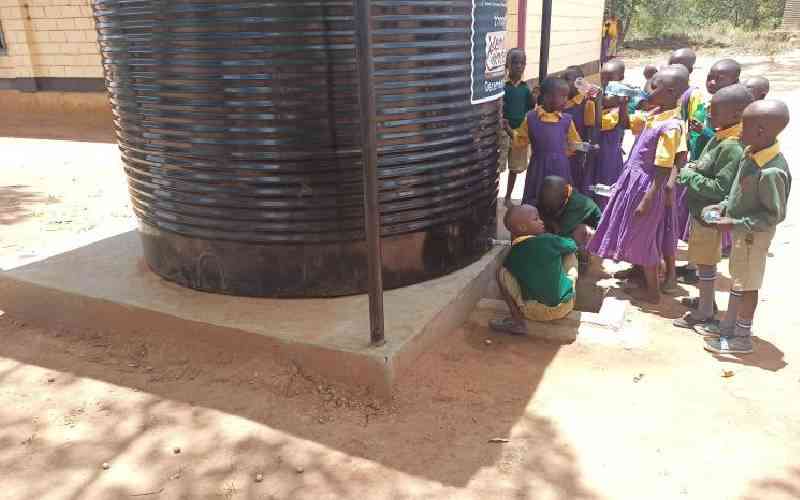×
The Standard e-Paper
Home To Bold Columnists

On a normal day, Grade 7 pupil Jane Mutheu wakes up as early as 4am. While she is a diligent pupil, she doesn't wake up this early to study but rather to fetch water for her sickly mother before heading to school with water in a five-litre jerrican.
"Everyone is required to come with water because we normally have lunch here in school, so I make sure that after fetching some for my family, I also fetch another jerrican to bring to school," Jane, who is a pupil at Kithiani Primary School says.